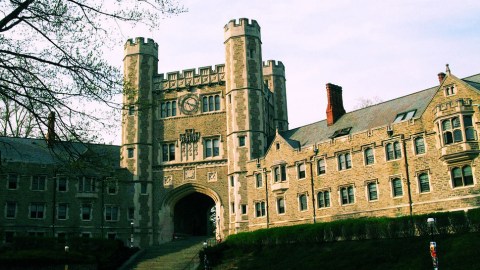What’s the Future of Higher Education?

What’s the Big Idea?
With tuition spiraling upwards as the cost of learning paradoxically plummets, higher education is on an unsustainable course.
Why Is This Groundbreaking?
The modern university has, to a great extent, remained unchanged for 1000 years, despite massive changes in the way information is gathered, stored, and communicated. Founded upon the basic principles of heredity, authority, and scarcity of knowledge, the university is almost this “religious, sacred totem” that we as a society have carried with us, says Big Think expert Anya Kamenetz, author of the books “Generation Debt” and “DIY U.”
But this model may no longer be serving us anymore. With student debt reaching all-time highs and colleges failing in their mission to educate, many, including investor Peter Thiel, have forecasted a massive correction in the higher education bubble. New educational models must reflect the fact that information is now free (or at least cheap) for all. And as we mentioned in a previous post, hosts of education startups are already trying to recreate the experience of college virtually, for a fraction of the cost.
Why Should You Care?
“You’d be hard pressed to find someone who doesn’t consider themselves concerned with the future of higher education,” says Kamenetz. If you’re one of the millions of Americans who owe part of the $875 billion in student loans, there’s little to be done at this point. But if you are considering taking on student loans, there are certain things that you should know in advance:
1. The age-old liberal arts model may not ready you for the workforce like it did in the past. “We’ve gone for too long with the single vision of what the university should be and everything else has been condemned as being second rate,” says Kamenetz. “We need to get away from that idea where there’s seven liberal arts and that’s all that there are.” Design, entrepreneurship, and computer science could emerge as new models for a 21st century liberal arts, she believes.
2. The spoon-feeding paradigm of learning is dying. If you are going to pursue a higher education degree—and take on the debt associated with it—be prepared to take an active approach to your education, which means forging your own connections and seeking internships and opportunities. Now more than ever “being a good student is not the same kind of cultivation of qualities that’s going to make you a successful adult,” she says.
3. There are so many resources for learners outside the classroom, which means you might be able to simulate much of a college education on your own—if you’re willing to put in the effort. As Kamenetz explains in the video below, there have never been more resources available to eager learners:





